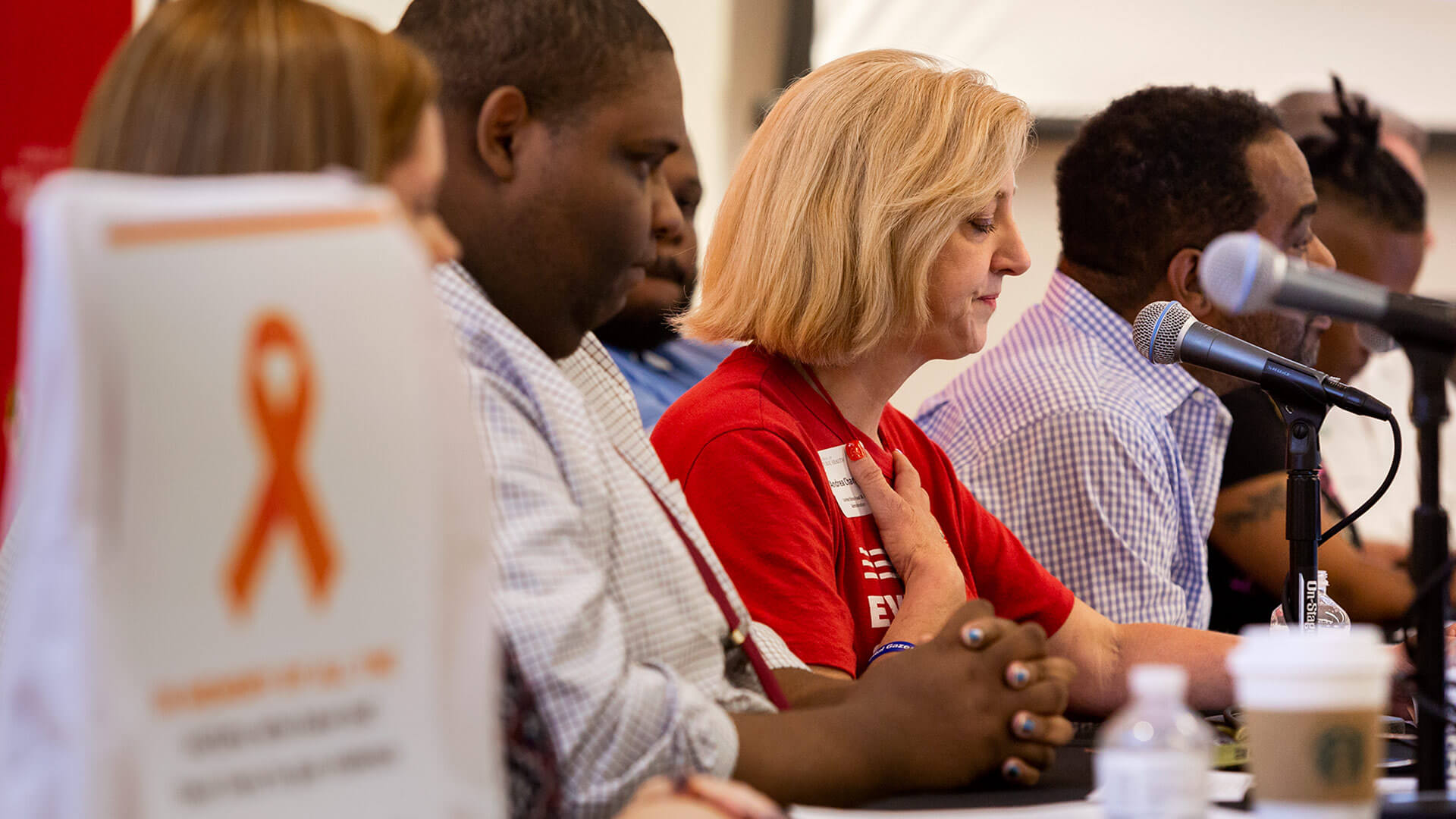- April 25, 2019
- By Liam Farrell
Changing the conversation about gun violence—whether by sharing the personal stories of victims, calling a congressman or attending a legislative hearing—is the only way to stop it, a panel of experts told UMD community members yesterday.
The School of Public Health hosted the Teach-In on Activism to Prevent Gun Violence, featuring activists, researchers and government officials, to help shift the discourse from hardened political stances to discussions concerning how to stop preventable casualties.
“Anything that kills and maims the population … becomes a public health matter,” said Boris Lushniak, dean of the School of Public Health. “Our nation is being hurt by something. The question is what to do about it.”
The wide-ranging talk touched on everything from complications of race and class to how images in the media help fuel notoriety of mass murderers. U.S. Rep. Jamie Raskin (D-Maryland) told the audience that one of the biggest challenges in fashioning a government response is an aversion to collecting data that shows “social implications we don’t like.”
“It has created this simplistic, bipolar thinking,” he said. “We can make our society so much safer, even while respecting Second Amendment rights.”
Joseph Richardson, associate professor of African American studies, talked about the necessity of connecting victims of violence to proper resources and social programs so they don’t wind up back in the same situation. He said his violence intervention project at the University of Maryland Prince George’s Hospital Center managed to drastically reduce return visits—and potentially curb retribution as well.
“How many people did we save from killing someone else?” he said. “The onus is on us.”
Andrea Chamblee ’83, whose husband John McNamara ’83 was one of the journalists killed in last year’s mass shooting in the Capital Gazette newsroom in Annapolis, encouraged the audience of students, staff and faculty to broaden their perspective of who counts as a victim of gun violence—including those who were never harmed by bullets.
“I’m still a casualty of the status quo,” she said. “This is the civil rights issue of our time.”
She also urged attendees to text "student" or "educator" to 64433 to receive information from the nonprofit Everytown for Gun Safety on how to join the fight against gun violence in America.
Other panelists were Erricka Bridgeford, co-founder and co-organizer of Baltimore Ceasefire 365; Che Bullock of the Capital Region Violence Intervention Program; Jabari Lyles, LGBTQ affairs liaison with the Baltimore City Mayor's Office; David Mitchell, UMD police chief and director of public safety; and Jen Pauliukonis, president of Marylanders to Prevent Gun Violence.
Their event preceded a two-day national summit on gun violence prevention research being held on campus. Bringing together academics, researchers, scientists, community activists, and law enforcement and public health officials, the summit is scheduled to explore everything from the basic statistics of American gun violence and effective legal responses to its intersection with issues of economics, media and politics.
“There’s optimism and hope here,” said Woodie Kessel, School of Public Health professor of the practice. “It’s going to take time and tenacity and fortitude.”
Topics
Campus & CommunityTags
Public SafetyUnits
School of Public Health